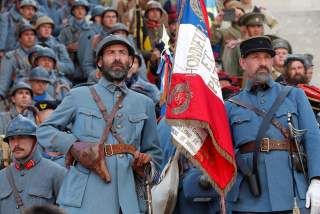The Ghosts of 1918
One hundred years after the end of World War I, international affairs appear in many ways to be coming full circle.
This emphasis on great power conflict represents a shift away from the focus on economics and globalism that has prevailed in the past few decades towards hard power. In this issue, Henry R. Nau argues that America is receiving a third chance to strike a balance between nationalism and globalism. He believes that nationalism and globalism can be complementary forces. At a moment when the major industrialized countries are democracies, nationalism can serve as a kind of democratic check on global elites and institutions. In his view, globalism means a federalist or conservative internationalism, one premised on limited global government that protects, not usurps, republican virtues:
The threat to the liberal order comes not from political shifts within democratic societies from liberal to conservative parties; that’s the normal cycle of democratic politics. It comes from resurgent autocrats in Russia, China, North Korea and Iran who do not tolerate such political shifts. Authoritarianism, not nationalism, poses the real threat to the liberal order.
So one hundred years after the end of World War I, international affairs appear in many ways to be coming full circle. Despite the venerable dream of a federation of man, there are numerous flash-points, ranging from the South China Sea to the Baltic States to Syria, that could draw the great powers into a conflict that inadvertently turns into a much larger one than anyone had anticipated. As they confront a new and dangerous era, world leaders might recall the lesson that the British historian A.J.P. Taylor drew from the carnage of World War I: “Though the object of being a Great Power is to be able to fight a Great War, the only way of remaining a Great Power is not to fight one.”
Jacob Heilbrunn is the editor of the National Interest.

